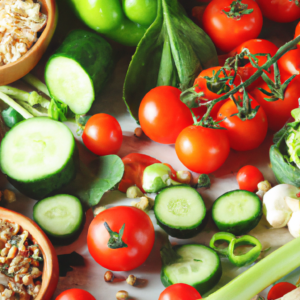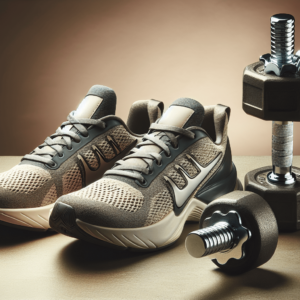Are you tired of struggling with weight loss and feeling overwhelmed by intense workout routines? If so, you’re in luck! In this article, we will uncover the secrets to losing weight quickly and effectively without the need for exercise. Discover simple yet powerful strategies that will help you shed those unwanted pounds and achieve the body you have always desired. Say goodbye to the exhausting gym sessions and hello to a new and effortless approach to weight loss. Get ready to unlock the key to your dream body!
How To Lose Weight Quickly Without Exercise

Introduction
Losing weight is a common goal for many people, but not everyone has the time or ability to engage in regular exercise. The good news is that you can still achieve weight loss without hitting the gym. By making some simple lifestyle changes and adopting healthy habits, you can shed those extra pounds and feel great in no time. In this article, we will explore various strategies to help you lose weight quickly without exercise.
Understanding the Basics
Before we dive into the tips and techniques, it’s essential to understand the basics of weight loss. The key principle behind losing weight is to create a calorie deficit, meaning you consume fewer calories than you burn. This can be achieved through a combination of dietary changes, portion control, and mindful eating. By focusing on nutrient-dense foods, you can maximize your nutritional intake while minimizing excess calories.
1. Monitor Your Caloric Intake
Tracking your calorie intake is the starting point of any successful weight loss journey. By being aware of how many calories you consume, you can make necessary adjustments to reach your goals.
1.1 Calculate Your Daily Caloric Needs
To determine your daily caloric needs, you can use an online calculator that takes into account factors such as age, gender, weight, height, and activity level. Once you have this number, you can create a calorie deficit by consuming fewer calories than your body requires.
1.2 Meal Planning and Portion Control
Meal planning is an effective way to control your calorie intake. By preparing your meals in advance, you can ensure that you have healthy options readily available and avoid impulsive food choices. Additionally, practicing portion control can help prevent overeating and limit excessive calorie consumption.
1.3 Choose Nutrient-Dense Foods
When trying to lose weight, it’s crucial to focus on nutrient-dense foods. These are foods that provide a significant amount of vitamins, minerals, and other essential nutrients, while being relatively low in calories. Incorporate plenty of fruits, vegetables, lean proteins, and whole grains into your diet to maximize nutritional value.
1.4 Limit Empty Calories
Empty calories, such as those found in sugary drinks, processed snacks, and desserts, provide minimal nutritional value and can quickly add up. By limiting or eliminating these empty calorie sources from your diet, you can avoid unnecessary weight gain and increase your chances of losing weight.
2. Choose a Balanced Diet
Adopting a balanced diet is crucial for achieving weight loss goals without exercise. A balanced diet incorporates a variety of food groups in appropriate proportions, providing your body with the necessary nutrients while keeping calorie intake in check.
2.1 Include Lean Proteins
Protein is an essential component for weight loss as it promotes feelings of fullness and facilitates muscle repair and growth. Including lean protein sources such as chicken, fish, tofu, and legumes in your meals can help control appetite and maintain muscle mass.
2.2 Prioritize Whole Grains
Whole grains are an excellent addition to any weight loss diet. They contain fiber, which promotes healthy digestion and keeps you feeling full for longer periods. Choose whole grain options such as whole wheat bread, brown rice, quinoa, and oats to incorporate into your meals.
2.3 Increase Fruit and Vegetable Consumption
Fruits and vegetables are low in calories and high in fiber, making them ideal for weight loss. Incorporate a wide range of colorful fruits and vegetables into your diet to reap the benefits of their vitamins, minerals, and antioxidants. They also add variety and flavor to your meals.
2.4 Healthy Fats and Oils
While it may seem counterintuitive, including healthy fats in your diet can actually aid in weight loss. Fats provide a feeling of satiety, preventing overeating and unnecessary snacking. Opt for sources of healthy fats such as avocados, nuts, seeds, and olive oil to keep your diet well-balanced and satisfying.
3. Stay Hydrated
Drinking an adequate amount of water throughout the day is essential for weight loss. Not only does it keep you hydrated, but it also helps control appetite and prevents overeating. Drinking water before meals can help you feel fuller, reducing the likelihood of consuming excess calories. Aim to drink at least eight glasses of water per day, or more if you engage in intense physical activity.
4. Mindful Eating
Practicing mindful eating is an effective strategy for weight loss without exercise. It involves paying attention to your body’s hunger and fullness cues, as well as being aware of the taste, texture, and satisfaction derived from each bite. By slowing down, savoring your food, and avoiding distractions, you can better control portion sizes and make healthier food choices.

5. Keep a Food Journal
Keeping a food journal is another helpful tool when trying to lose weight. By writing down everything you eat and drink, you become more accountable and aware of your eating habits. This practice can help identify patterns, trigger points, or areas for improvement in your diet. It also allows you to reflect on your choices and make adjustments as needed.
6. Reduce Salt Intake
Excess salt consumption can lead to water retention and bloating, making it harder to achieve weight loss goals. By reducing your sodium intake, you can minimize water weight and potential health risks associated with high sodium diets. Be mindful of processed foods, which are often high in sodium, and opt for fresh, natural ingredients when preparing meals.
7. Limit Processed Foods
Processed foods tend to be high in unhealthy fats, added sugars, and empty calories, making them detrimental to weight loss efforts. By limiting your intake of processed foods and focusing on whole, minimally processed options, you can improve your overall health and increase your chances of successful weight loss.
8. Get Quality Sleep
Sleep plays a significant role in weight management. Lack of sleep can disrupt metabolism, increase hunger hormones, and negatively impact your weight loss efforts. Aim for seven to eight hours of quality sleep each night to support your body’s natural processes and promote overall well-being.
9. Practice Stress Management
Stress can contribute to weight gain as it often leads to emotional eating or poor food choices. Finding healthy ways to manage stress, such as through meditation, exercise, or engaging in hobbies, can help prevent weight gain and support your weight loss goals. Prioritizing self-care and relaxation can have a positive impact on your overall health and well-being.
10. Seek Support and Accountability
Lastly, seeking support and accountability can greatly enhance your weight loss journey. Whether it’s joining a support group, partnering up with a friend, or working with a health professional, having someone to share your struggles and successes with can keep you motivated and focused on achieving your goals.
Conclusion
Losing weight quickly without exercise is achievable with the right strategies and mindset. By monitoring your caloric intake, choosing a balanced diet, staying hydrated, practicing mindful eating, keeping a food journal, reducing salt and processed foods, getting quality sleep, managing stress, and seeking support, you can embark on a successful weight loss journey. Remember, it’s essential to prioritize your health and well-being, and sustainable weight loss comes from adopting long-term healthy habits.






